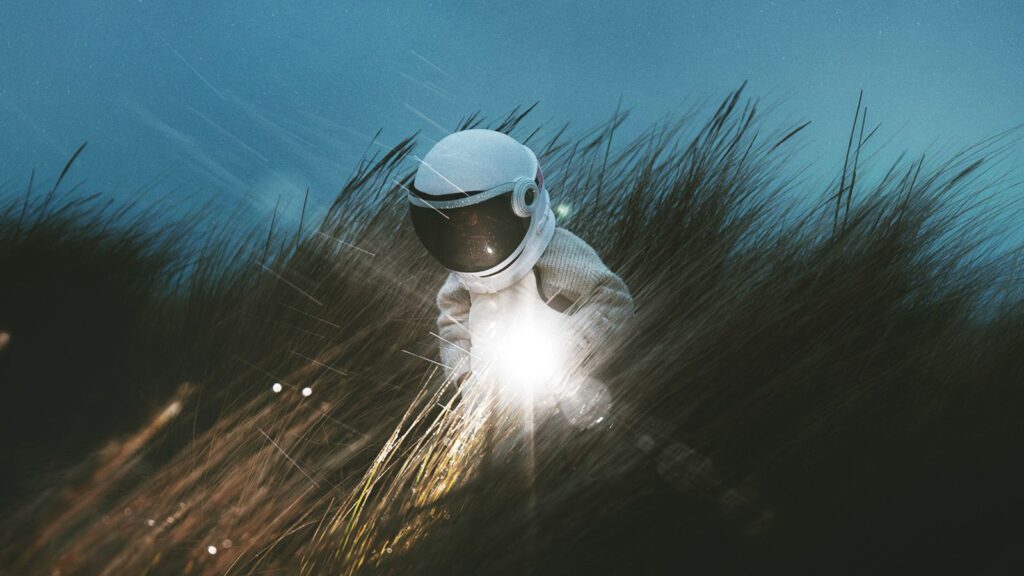It wasn’t the sexiest event that day — Alan Alda was touting new inventions over at Baruch while our favorite Paul Miller (aka DJ Spooky) was putting in his time exploring parallel universes at NYU. But it wouldn’t be fair to say World Science Festival’s debate at the 92 Street Y was the opposite of sexy. If nothing else, taking on one of the most vexing questions of all time — do humans have free will? — in front of a New York audience took chutzpah.
As part of a weeklong series of events, the second annual World Science Festival brought in Nobel Laureate Paul Nurse to moderate a panel that included distinguished scientists from the three fields that overlap in this area: Patrick Haggard, a neuroscientist, Alfred Mele, a philosopher, and Dan Wegner, a psychologist. The four entered, sat and crossed their legs in the same direction (as Wegner pointed out immediately when asked about free will), but there was clearly division among them.
Haggard re-framed the issue by talking about constructed actions versus reflexes, and touted the human brain’s ability to deal with complex situations when “it’s not obvious what response is required.” He described studies that prove the brain reacts before the individual is conscious. His implication was that the brain relies almost exclusively on memory, even at birth.
Mele agreed that we have free will, whenever multiple decisions are possible and so long as we are acting without compulsions or disorders of any kind. Conditions that all but negate the possibility, except in the most trivial of circumstances, such as which pant leg to pull up first. (Though it’s been suggested elsewhere that task order is determined by a person’s disposition — right-handed people, if they’re optimistic, do the right side first — quashing notions of free will under this model entirely.)
And finally, Wegner argued convincingly that feeling we have free will is as good as having free will. Which might lead some to ask, why should we care? After all, despite the staggering brainpower of the panel, it was hard not to look at them all and wonder just how silly and small these conundrums might one day seem. Once upon a time, scientists believed that rotting meat “transformed” into maggots.
Why you should care
If we accept that our actions are predictable based on our genetic code as opposed to free will, the sociological implications are vast. In 1996, Tom Wolfe wrote a landmark essay (“Sorry, But Your Soul Just Died”), eloquently describing the challenges. For those of you who might not get through its thousands of words, here are two quick examples. If there exists a “gay gene,” then hindering gay rights is a futile attempt to legislate nature. Conversely, if men and women are hardwired differently, attempts to engender equality fly in the face of natural law. And this is but one aspect. The science is yet young, but the fear it engenders has been around for ages.
“Maybe we’re not all interested in being wonderful machines,” Nurse quipped after a couple of theories about enhancing human performance were trotted out. For now it’s drugs you can take — according to your own free will and your doctor’s prescription-but surgical enhancements can’t be far off. Who will be “The Decider” defining appropriate human performance? George Bush or his ilk? Or worse? (Yes, it could be much much worse.)
The Story
One of the most fascinating comments of the night was tossed off by Haggard when he described the brain as a post-dictive device. He likened free will to a confabulation, a story we tell about our actions, after the fact. The question that was never dealt with — who’s telling the story? And why?
Wegner pointed out historic mistakes in causality — the belief that A causes B, when there’s always X, Y or Z-but none of it touched his own real-life experience. A few years back he’d had an operation that caused him to lose his cognitive ability to monitor his actions. For several weeks after the surgery, Wegner would find himself moving his right hand without being aware he’d told himself to move his right hand. From there the discussion morphed into one of intentions, but the idea of the mind building a sense of itself was lost. Too bad, because this is where this quandary gets sexy.
Buddhists have been talking up the idea of a clingy ego for thousands of years. Was not Siddhartha the original quantum physicist? (Though another break for humor came when Wegner dismissed applying quantum theories to the free will question as an attempt at using one unknown to explain another.)
What all the studies described that night at the Y indicate is a collective human capacity for cohesion. Action, however, is an innate yearning regardless of the size, makeup or even existence of the clump of cells called the brain. Every living being is connected by action, whether it fits into the storyline or not. No matter who is telling the story or why, humans have evolved because of our capacity to foster this mutual interdependence. This is the very essence of hope. Without hope, there would be no chutzpah.
Image by Hljod.Huskona, courtesy of Creative Commons license.















